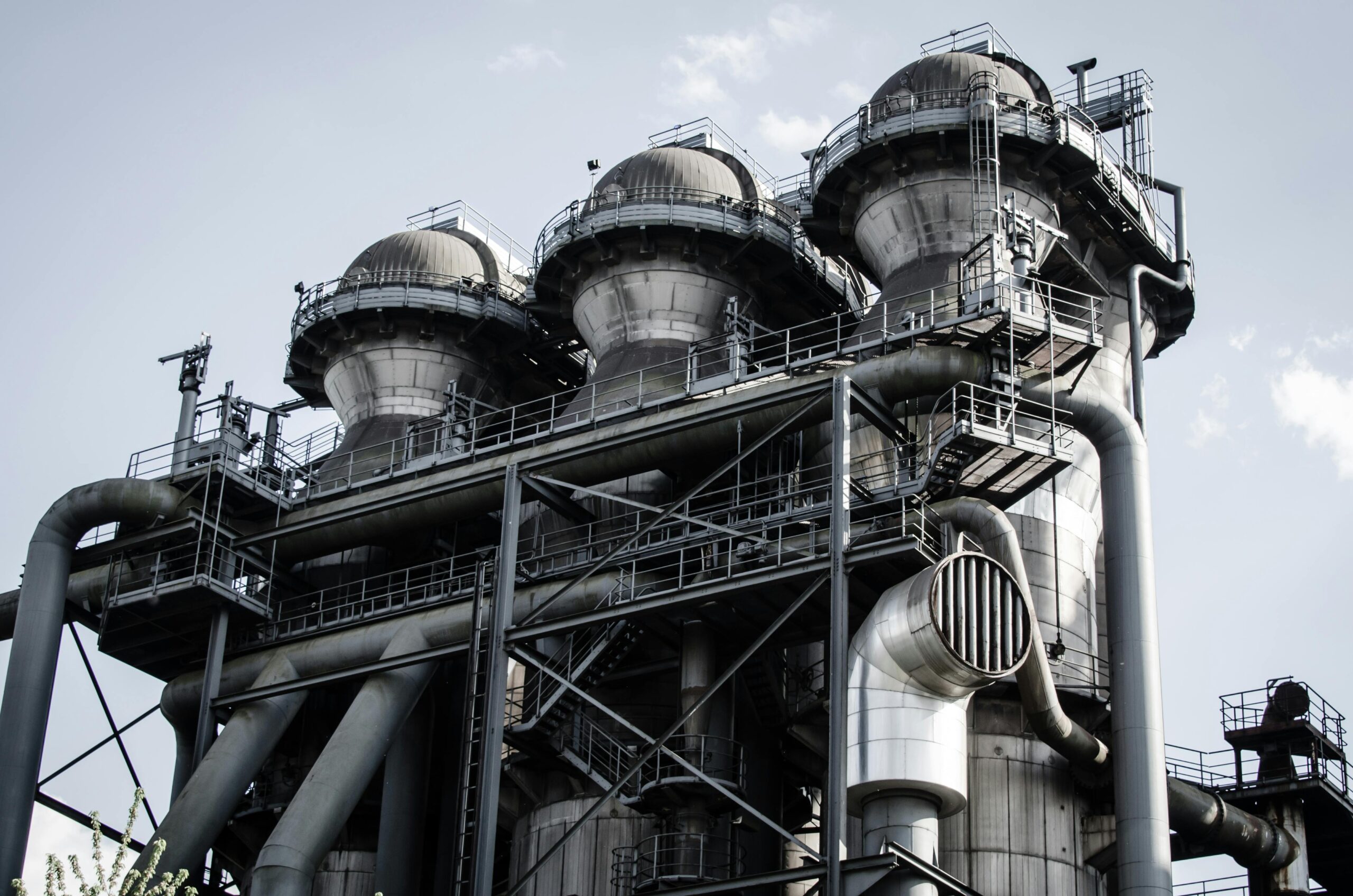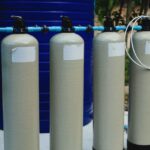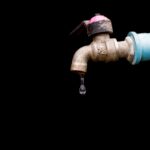Water-Efficient Industrial Processes: A Sustainable Approach

Industries use a lot of water for production, cooling, and cleaning. From manufacturing plants to food processing factories, water is a key part of daily operations. However, with freshwater becoming scarce in many parts of the world, industries need to find ways to use water wisely.
Water efficiency means using less water without affecting production. This helps businesses cut costs, follow environmental rules, and reduce their impact on nature. Many companies are now adopting new technologies and better practices to ensure they use water responsibly while staying productive.
The Need for Water Efficiency in Industries
The demand for freshwater is increasing, but supply is limited. Industrial activities account for a large share of water use worldwide, putting pressure on local water sources. If industries don’t manage water properly, communities and ecosystems suffer.
Water shortages can lead to higher production costs and even force businesses to slow or shut down. Many industries are now realizing that using water efficiently is not just about saving the environment – it’s also about staying in business. Companies that reduce their water use often see lower expenses, improved operations, and a better public image.
Key Industries with High Water Consumption
Some industries use more water than others, and improving their efficiency can have a big impact.
• Manufacturing: Factories that produce steel, textiles, and chemicals need large amounts of water for processing, cooling, and cleaning.
• Energy Production: Power plants, especially those that use fossil fuels or nuclear energy, require huge amounts of water for cooling.
• Food and Beverage: Water is essential in food processing, brewing, dairy production, and soft drink manufacturing.
• Pharmaceuticals: The production of medicines and healthcare products involves many water-intensive steps, including cleaning and ingredient preparation.
Since these industries rely so much on water, they must find ways to use it more efficiently without affecting production quality.
Technologies for Water Efficiency in Industries
New technologies are helping industries reduce water use while maintaining high productivity. Some of these include:
• Water Recycling Systems: Many industries now use closed-loop systems, where water is treated and reused instead of being discarded after one use.
• Advanced Filtration: Techniques like reverse osmosis and nanofiltration help remove impurities, allowing water to be reused safely.
• Automation and Smart Sensors: These systems detect leaks, track water usage, and adjust water flow based on real-time data, reducing waste.
• Alternative Water Sources: Some industries collect and use rainwater or treated wastewater instead of relying solely on freshwater sources.
By adopting these technologies, industries can save water, reduce costs, and help protect the environment.
Best Practices for Reducing Water Use in Industries
Industries can significantly cut down on water use by adopting simple but effective practices. Some key strategies include:
• Fixing Leaks and Upgrading Equipment: Old pipes and outdated machines can waste large amounts of water. Regular maintenance and upgrading to water-efficient equipment help reduce waste.
• Optimizing Cleaning Processes: Many industries use high-pressure nozzles and steam cleaning instead of water-intensive methods to clean machinery and production areas.
• Employee Training and Awareness: Workers play a big role in water conservation. Training employees on water-saving habits ensures that efficiency measures are followed.
• Water Audits: Regular assessments help industries track water use, find problem areas, and implement solutions for better efficiency.
When industries make these small but impactful changes, they reduce water waste and improve overall efficiency.
Economic Benefits of Water-Efficient Processes
Saving water also means saving money. Water-efficient industries experience several financial benefits:
• Lower Water Bills: Using less water directly reduces the cost of water supply and wastewater treatment.
• Energy Savings: Many water-related processes, like heating and pumping, require energy. Cutting water use also lowers energy consumption, leading to reduced electricity costs.
• Improved Productivity: Efficient water use prevents delays caused by shortages, ensuring smooth operations.
• Avoiding Fines and Penalties: Many governments have strict rules on industrial water use. Following water efficiency regulations helps businesses avoid legal trouble and fines.
• Long-Term Savings: Investing in water-saving systems may require an initial cost, but the long-term financial benefits outweigh the investment.
• Better Risk Management: Industries that rely heavily on water face risks when supply is scarce or expensive. By reducing water dependency, companies can avoid financial losses caused by water shortages.
These benefits make it clear that industries should see water efficiency as an investment rather than an extra expense.
Environmental Impact of Industrial Water Use
Industries that use too much water can cause serious environmental damage. The main problems include:
• Water Shortages for Communities: Heavy industrial use can reduce the availability of water for households and farmers.
• Pollution of Rivers and Lakes: Wastewater from factories often contains harmful chemicals that, if not treated properly, can pollute natural water sources.
• Damage to Aquatic Life: Many industrial activities release hot water into rivers and lakes, a process known as thermal pollution, which can harm fish and other aquatic species.
By using water more efficiently, industries can reduce their environmental impact and help preserve natural resources for future generations.
Regulations and Policies Promoting Industrial Water Efficiency
Governments and international organizations have introduced rules and policies to encourage industries to use water responsibly. Some key approaches include:
• Water Use Permits: Many countries require industries to obtain permits that limit the amount of water they can use.
• Incentives for Water Efficiency: Some governments offer tax breaks and financial support to industries that invest in water-saving technologies.
• Stricter Wastewater Treatment Standards: Regulations ensure that industries treat and recycle wastewater before releasing it into the environment.
• Industry-Specific Guidelines: Sectors like manufacturing, energy, and food production often have special water efficiency rules tailored to their needs.
Following these regulations not only keeps industries compliant but also encourages innovation in water-saving technologies.
Innovations in Water-Saving Technologies for Industries
Many industries are turning to new technologies to reduce water use without affecting productivity. Some of the latest innovations include:
• Advanced Filtration Systems: Modern filters remove impurities from used water, making it clean enough for reuse in industrial processes.
• Smart Water Monitoring: Sensors and AI-powered systems help industries track water usage in real-time, detect leaks, and optimize water use.
• Membrane Technologies: Processes like reverse osmosis and nanofiltration help separate contaminants, allowing industries to reuse water efficiently.
• Zero Liquid Discharge (ZLD) Systems: ZLD ensures that all wastewater is treated and reused, leaving no liquid waste behind. This is particularly useful in industries like textiles, chemicals, and power plants.
By investing in these technologies, industries can significantly cut water waste and improve sustainability.
Role of Industry Leaders in Promoting Water Efficiency
Business leaders play a big role in making water efficiency a priority. Some ways they can drive change include:
• Setting Water-Saving Goals: Companies can establish targets to reduce water consumption and track progress over time.
• Investing in Water-Efficient Infrastructure: Upgrading to modern, water-saving equipment helps industries cut waste in the long run.
• Encouraging Employee Participation: When employees understand the importance of water conservation, they can contribute to saving water in daily operations.
• Collaborating with Governments and NGOs: Working with policymakers and environmental organizations can help industries stay ahead of new regulations and benefit from support programs.
When industry leaders take responsibility, they not only improve their company’s sustainability but also contribute to global water conservation efforts.
Policy and Regulatory Support for Industrial Water Efficiency
Government policies and regulations play a major role in encouraging industries to use water efficiently. Some key ways policymakers support water conservation include:
• Setting Water Use Standards: Many governments establish limits on industrial water consumption and wastewater discharge to protect water resources.
• Providing Incentives: Some countries offer tax benefits, subsidies, or grants to industries that adopt water-saving technologies.
• Encouraging Public-Private Partnerships: Collaboration between governments and businesses can lead to large-scale water conservation programs.
• Monitoring and Compliance Enforcement: Strict monitoring ensures industries follow water regulations, preventing excessive use and pollution.
Stronger policies and proper enforcement help industries transition to water-efficient practices, benefiting both businesses and the environment.
The Role of Innovation in Water Efficiency
Innovation plays a big role in helping industries manage water more effectively. New technologies and creative approaches continue to reshape how water is used in industrial processes. Key innovations include:
• Smart Water Management Systems: These systems use sensors and data analytics to monitor water usage in real time, helping industries identify and fix inefficiencies quickly.
• Recycling and Reuse Technologies: Advanced filtration and treatment methods allow industries to recycle water multiple times, reducing the need for freshwater.
• Eco-Friendly Materials: Using materials that require less water in production contributes to overall water efficiency.
• Process Redesign: Many industries are redesigning their production lines to incorporate water-saving techniques without compromising quality.
Innovative solutions not only make water usage more sustainable but also help industries stay competitive in an era of increasing resource scarcity.
Conclusion
Making industrial processes more water-efficient is not only about cutting costs but also about long-term sustainability. Industries use a huge amount of water, and without smart management, this can lead to waste, pollution, and shortages. By adopting efficient technologies, reusing water, and treating wastewater properly, industries can reduce their environmental impact while ensuring they have enough water for future needs.
Switching to water-efficient processes benefits everyone. Businesses save money on water and energy costs, communities have more access to clean water, and ecosystems remain healthier. Governments and regulatory bodies also play a crucial role by enforcing policies that encourage industries to use water responsibly.
Organizations like Aqua Maya support sustainable water management by helping communities access clean water and promoting better water practices. Their work shows the importance of responsible water use across all sectors, including industry.
As the demand for water keeps rising, industries must lead the way in using it wisely. Water-efficient practices are not just an option – they are essential for a future where businesses, people, and the planet can all thrive.
Sources
1. https://incit.org/en/thought-leadership/water-efficiency-in-manufacturing/
2. https://www.ctc-n.org/sites/www.ctc-n.org/files/resources/water_efficiency_in_industry.pdf
3. https://www.sciencedirect.com/science/article/abs/pii/B9780323918381000099
4. https://iwaponline.com/wp/article/24/1/117/85449/Economic-size-and-water-use-efficiency-an
5. https://www.sciencedirect.com/topics/engineering/industrial-water-use






